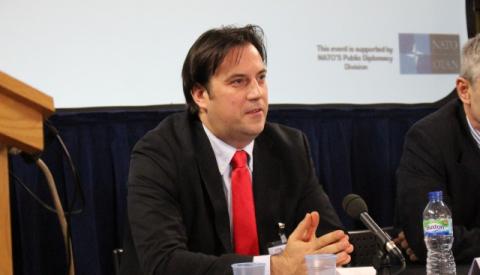Russia is “Agnostic” When it Comes to Serbia-Kosovo Deal

Interview with Dimitar Bechev originally seen on European Western Balkans.
, research fellow at the Center for Slavic, Eurasian, and East European Studies at the University of North Carolina at Chapel Hill and a nonresident senior fellow at the Atlantic Council. Bechev is also a member of the Balkans in Europe Policy Advisory Group (BiEPAG).
European Western Balkans: In previous years, much attention was given to the influence of "external actors" in the Western Balkans. Fear from their influence appears to have motivated both the EU and USA to pay more attention to the region. Do you think there actually was a change in policy of the Western actors when it comes to the Western Balkans?
Dimitar Bechev: The core of the policy stays the same: enlarging Western institutions. What's different perhaps is the closer focus on the region. Concern about external challengers plays a significant role. But also the sense of possibility to produce change. The Prespa Agreement and the overtures between Belgrade and Prishtina go a long way in drawing attention.
EWB: Do you think that the Western actors should be more concerned about Russian and other influences, or perhaps less? What would actually be the worst case scenario when it comes to the influence of external actors, if we know that the region is pretty integrated in Western economic and security structures already?
DB: Worst case scenario is isolation. Corruption and state capture thrives. Low-intensity violence in or between states comes back. Then foreign meddling could be much more threatening. Now it is concerning, but neither Russia nor China can do much to replace the West....
- Log in to post comments








